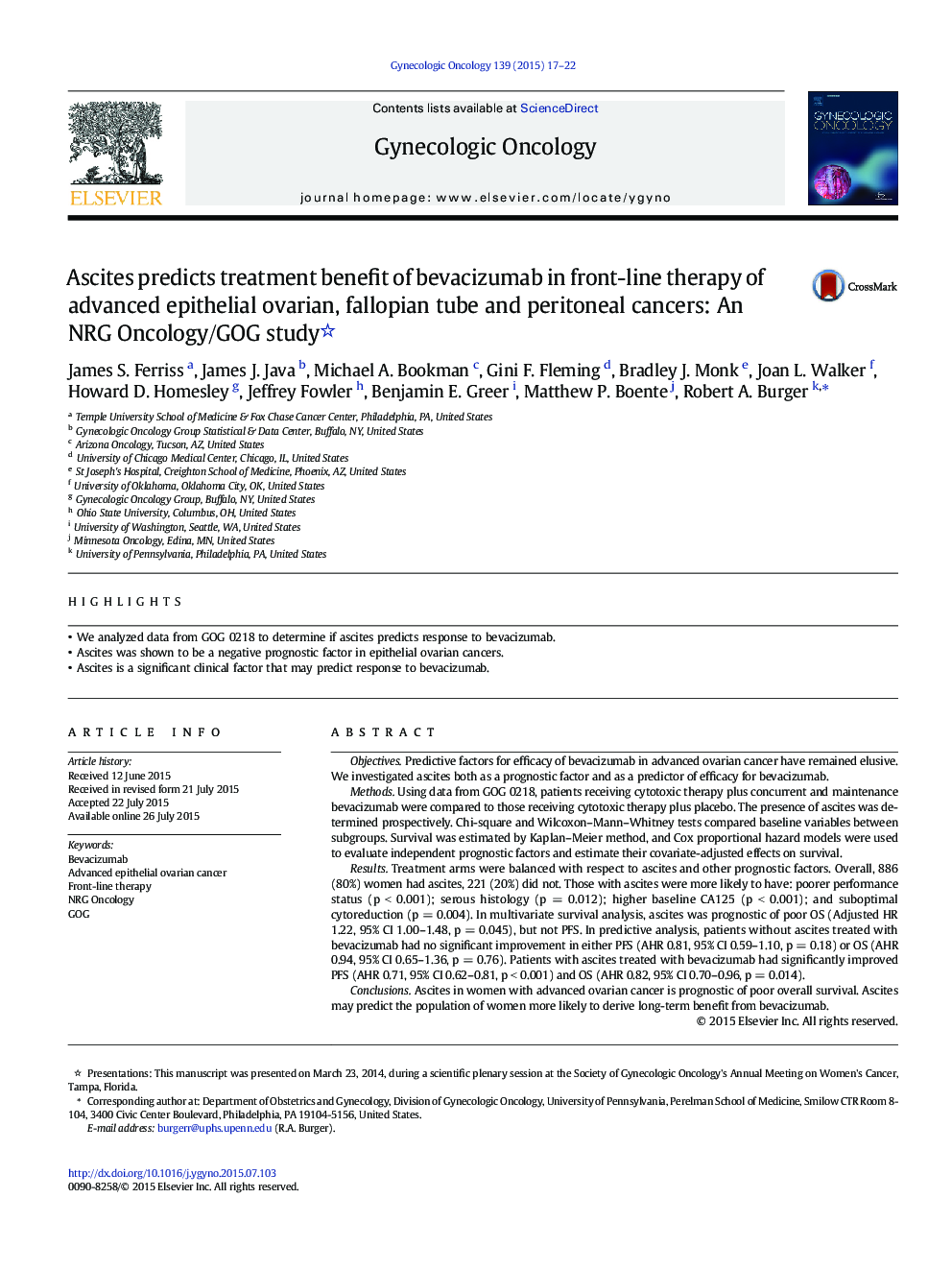| کد مقاله | کد نشریه | سال انتشار | مقاله انگلیسی | نسخه تمام متن |
|---|---|---|---|---|
| 3942540 | 1254014 | 2015 | 6 صفحه PDF | دانلود رایگان |

• We analyzed data from GOG 0218 to determine if ascites predicts response to bevacizumab.
• Ascites was shown to be a negative prognostic factor in epithelial ovarian cancers.
• Ascites is a significant clinical factor that may predict response to bevacizumab.
ObjectivesPredictive factors for efficacy of bevacizumab in advanced ovarian cancer have remained elusive. We investigated ascites both as a prognostic factor and as a predictor of efficacy for bevacizumab.MethodsUsing data from GOG 0218, patients receiving cytotoxic therapy plus concurrent and maintenance bevacizumab were compared to those receiving cytotoxic therapy plus placebo. The presence of ascites was determined prospectively. Chi-square and Wilcoxon–Mann–Whitney tests compared baseline variables between subgroups. Survival was estimated by Kaplan–Meier method, and Cox proportional hazard models were used to evaluate independent prognostic factors and estimate their covariate-adjusted effects on survival.ResultsTreatment arms were balanced with respect to ascites and other prognostic factors. Overall, 886 (80%) women had ascites, 221 (20%) did not. Those with ascites were more likely to have: poorer performance status (p < 0.001); serous histology (p = 0.012); higher baseline CA125 (p < 0.001); and suboptimal cytoreduction (p = 0.004). In multivariate survival analysis, ascites was prognostic of poor OS (Adjusted HR 1.22, 95% CI 1.00–1.48, p = 0.045), but not PFS. In predictive analysis, patients without ascites treated with bevacizumab had no significant improvement in either PFS (AHR 0.81, 95% CI 0.59–1.10, p = 0.18) or OS (AHR 0.94, 95% CI 0.65–1.36, p = 0.76). Patients with ascites treated with bevacizumab had significantly improved PFS (AHR 0.71, 95% CI 0.62–0.81, p < 0.001) and OS (AHR 0.82, 95% CI 0.70–0.96, p = 0.014).ConclusionsAscites in women with advanced ovarian cancer is prognostic of poor overall survival. Ascites may predict the population of women more likely to derive long-term benefit from bevacizumab.
Journal: Gynecologic Oncology - Volume 139, Issue 1, October 2015, Pages 17–22